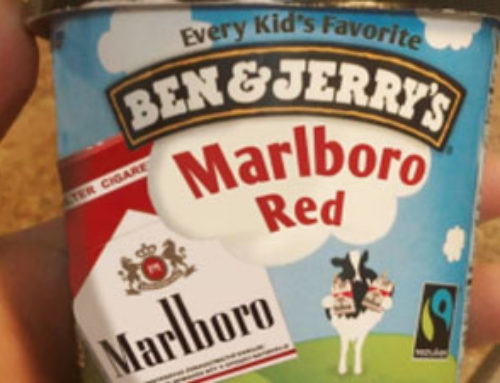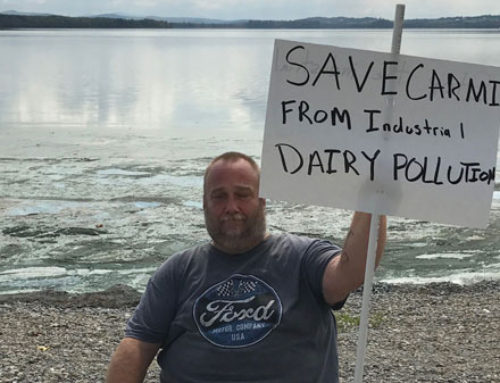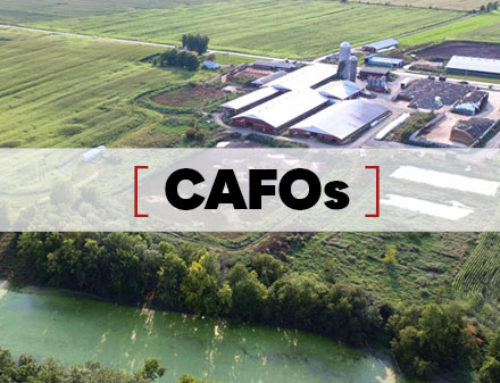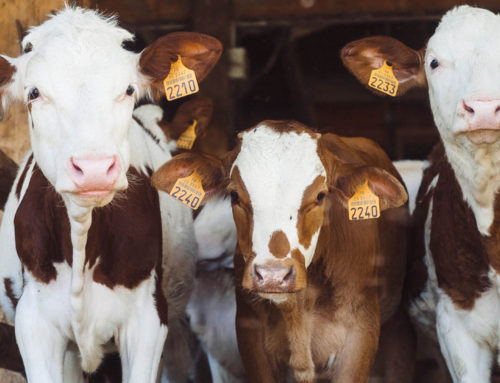 A Regeneration Vermont (RegenVT) investigation has discovered that a farm owned by the vice president of the St. Albans Cooperative Creamery, the suppliers for Ben & Jerry’s ice cream, allegedly violated water quality laws by releasing manure runoff into the state’s waterways late last year. According to records obtained by RegenVT from state regulators, Vermont’s Agency of Agriculture is alleging that Jacques Parent of the Parent Farm in Highgate, spread nearly 400,000 gallons of liquid manure on snow-covered fields in late November, resulting in significant manure runoff when temperatures climbed and rains came after the spreading.
A Regeneration Vermont (RegenVT) investigation has discovered that a farm owned by the vice president of the St. Albans Cooperative Creamery, the suppliers for Ben & Jerry’s ice cream, allegedly violated water quality laws by releasing manure runoff into the state’s waterways late last year. According to records obtained by RegenVT from state regulators, Vermont’s Agency of Agriculture is alleging that Jacques Parent of the Parent Farm in Highgate, spread nearly 400,000 gallons of liquid manure on snow-covered fields in late November, resulting in significant manure runoff when temperatures climbed and rains came after the spreading.
The Parent Farm is one of several suspected water quality violations that occurred when last year’s late rains and early snow led the Ag Agency to lift the Required Agriculture Practice (RAP) that bans the spreading of manure on snow due to the high likelihood that this manure will contaminate waterways. The state’s large, confinement dairies – the Parent Farm has more than 1000 dairy cows – pleaded with the Ag Agency to lift the snow-spreading ban because of their worries that they were accumulating too much manure in their pits to allow them to get through the winter.
In November, the Ag Agency acquiesced to the pleadings from the state’s largest farms and issued a blanket “emergency order,” lifting the snow-spreading ban so the state’s concentrated animal feeding operations (CAFOs) could reduce manure volume in their pits before the winter-spreading ban (December 15th to Arpil 1st) took effect. Along with its lifting of the snow-spreading ban, the Ag Agency issued a guidance sheet to all farms that proscribed rules to limit the damage, including a call for 200-foot setbacks from ditches, field edges and waterways and a reduction of manure volume to no more than 3000-4000 gallons per acre.
In the field report issued by Ag Agency inspectors, which includes a video and numerous photographs of the runoff, the Parent Farm was spreading as close to 24-feet to field edges and was spreading at a rate of 8,000 gallons per acre, double the allowed limit.
The Ag Agency has referred the alleged violations to the Agency of Natural Resources and recommended enforcement action, but only after ANR officials previously attempted to close the case. It’s a timeline and course of action that raises numerous questions about the coordination between the two agencies and suspicions about ANR’s early attempts to close the case without enforcement despite the video evidence (see below) and Ag Agency inspection reports.
Take, for example, the timeline: On November 24th, two members of the public called state regulators to report the Parent Farm’s extensive spreading on snow. Two days later, two Ag Agency inspectors arrived on the scene and documented the runoff and filed a report that was unambiguous about their findings:
“The video shows manure running off of the field and flowing toward a ditch with flowing water in it. The ditch leads to a surface water. Investigation shows that this complaint should be referred to ANR.”
But it took 10 more days – until December 6th — and additional complaints from the public as the Parent Farm continued to spread before an ANR official arrived at the scene. The ANR inspector, Sean McVeigh, closed the case after his visit, writing the following in his short report:
“Parent said the (sic) there was no manure running off of the field. Parent drove me in his truck around the edge of the subject field…I did no see any evidence of manure leaving the field…Closed.”
It was only after RegenVT began filing for the records associated with this alleged violation, including an interview with McVeigh, that the case was apparently re-opened and recommended for enforcement action.
This is a developing story that will be updated as records are reviewed and additional records are requested.




